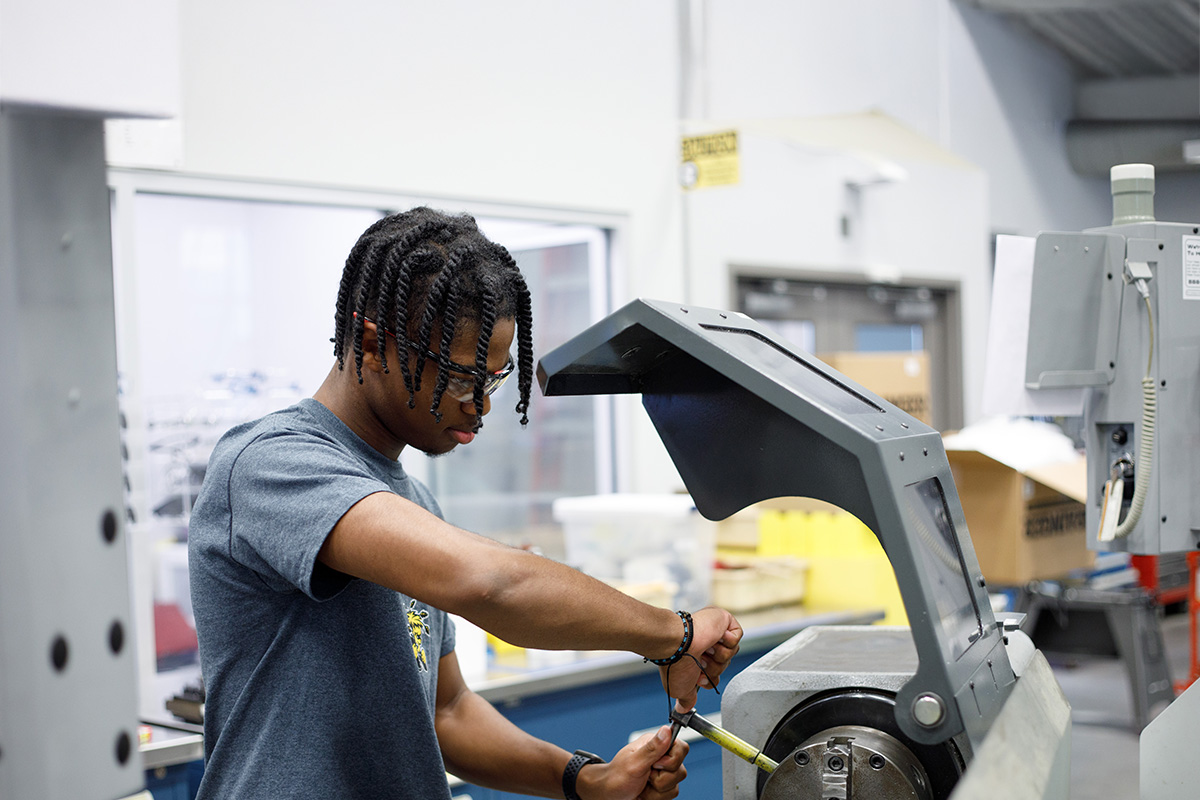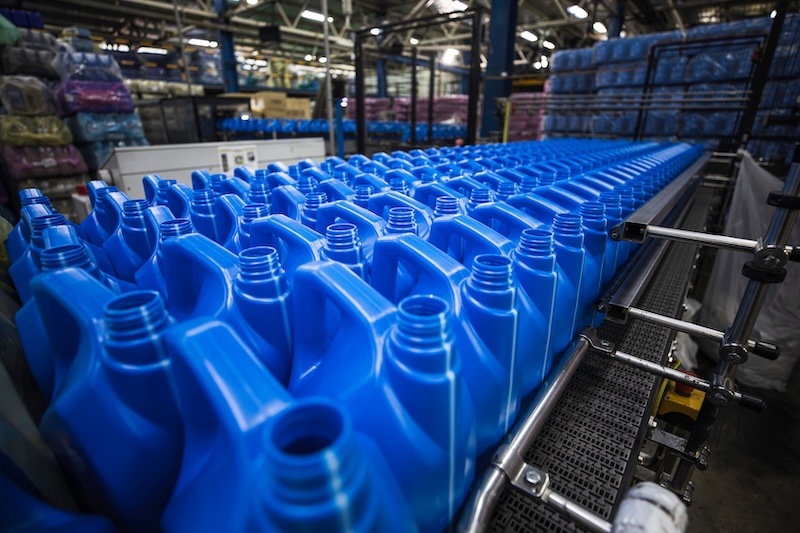
The Department of Industrial, Systems and Manufacturing Engineering within the College of Engineering at WSU offers bachelor's degrees in Industrial Engineering and Product Design and Manufacturing Engineering. There is also the option of an accelerated bachelor's to master's in Industrial Engineering and a minor in Manufacturing Engineering.

The Industrial Engineering undergraduate program prepares graduates to design and optimize systems and processes with a focus on the people involved in those processes. They go on to make the complex systems of people, money, information, energy, equipment and materials operate effectively. The versatile degree can lead to a career in a wide variety of manufacturing or service industries, with various applications like data analytics, process improvement, ergonomics, supply chain management, system optimization, facility design and quality engineering.
Students in the Industrial Engineering program study core industrial engineering courses
and also choose from a number of technical electives with concentration on manufacturing
engineering, systems engineering, supply chain, data analytics, or business. As a
senior, you will work in a team on two separate semester-long projects, giving you
practical experience you will put to use in your future engineering career.
Degree Requirements Approved Technical Electives Course Offerings Schedule

The Product Design and Manufacturing Engineering undergraduate program integrates design, manufacturing, robotics and automation into a hybrid degree, teaching students how the production of goods and services works as a whole. Students develop an understanding of designing for manufacturability, creating a more cohesive process.
Students in the Product Design and Manufacturing Engineering program study core industrial
engineering courses in addition to materials, design and manufacturing courses. Within
the program, courses focus on product design and assembly, manufacturing quality and
productivity, and advanced processes and systems. Students may also choose from a
number of technical electives that allow for the exploration of concepts and topics
that impact design and processing.
Degree Requirements Approved Technical Electives Course Offerings Schedule
Industrial engineers apply scientific knowledge to solve problems in manufacturing and other industries, businesses and institutions, focusing on productivity improvement through better use of human resources, financial resources, natural resources and manmade structures and equipment. Industrial engineers apply a full range of analytical, simulation and experimentation tools that are applied to problems in designing, planning, implementing and operating systems. These problems are found in a wide variety of service organizations (e.g., banks, hospitals, social service and governmental agencies), project-based firms (e.g., construction and consulting), and product-based firms (e.g., processing, manufacturing, and electronics). The focus of industrial engineering is systems integration and improvement.
Manufacturing engineering is concerned with converting raw materials and intermediate products into final and other intermediate products through the use of various design, processing, assembly and automation techniques as well as the design and manufacturing of tools, jigs and machines used in these processes. The strength of the Product Design and Manufacturing Egnineering program is its emphasis on the following manufacturing engineering areas: materials and processes; product engineering and assembly; industrial robotics and automation; manufacturing quality and productivity. Manufacturing engineers can apply their broad and comprehensive skills in a wide spectrum of industries.
If you have questions about our undergraduate programs, you can contact the undergraduate coordinator, Dr. Cindi Mason. Otherwise, you can apply for admission into the program and schedule an advising appointment.